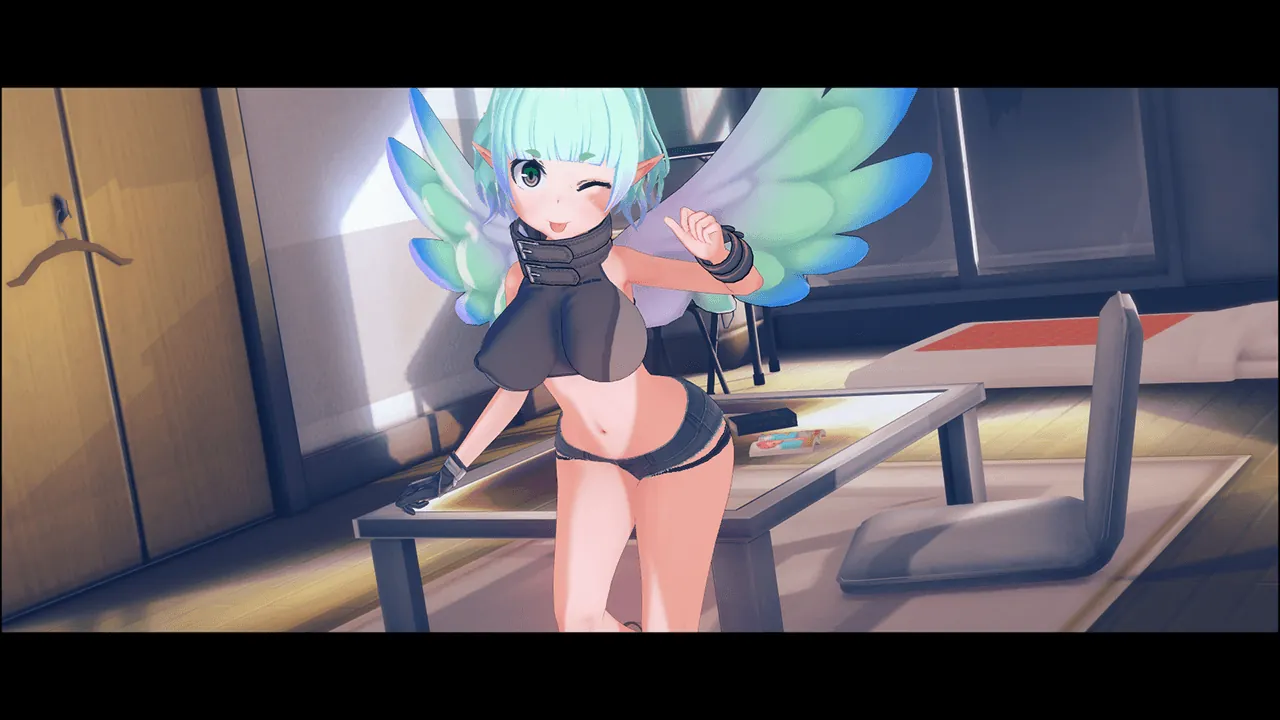
Corrupted Kingdoms
Play Corrupted Kingdoms
Corrupted Kingdoms review
Exploring the Story, Gameplay, and Unique Appeal of Corrupted Kingdoms
Corrupted Kingdoms is a unique game that blends engaging storytelling with immersive gameplay, capturing the attention of many players. Unlike typical titles in its category, it offers a surprisingly deep narrative and well-developed characters that evolve as the game progresses. This article dives into what makes Corrupted Kingdoms stand out, exploring its plot, gameplay features, and why it has gained a dedicated following.
What Makes Corrupted Kingdoms Stand Out?
Let’s be honest, you’ve probably started games that promised a rich, epic tale only to be met with a paper-thin plot and characters you forget the moment you turn off the screen. 🤔 I’ve been there too, and it’s why I was initially cautious about Corrupted Kingdoms. The title sounds cool, but so many games fail to deliver. I’m thrilled to report that this is not one of those games. In fact, it completely subverts those low expectations, weaving a narrative and mechanical experience that stands head and shoulders above many in its genre.
What makes it so special? It’s the masterful fusion of a deeply personal story and satisfying, strategic gameplay. Many games are strong in one area and weak in the other, but Corrupted Kingdoms refuses to make that compromise. It’s a journey that starts familiar but quickly evolves into something uniquely compelling, anchored by its incredible cast and a plot that isn’t afraid to get dark and complex. 🏰✨
How the Story Evolves Through Acts
The Corrupted Kingdoms story is a masterclass in pacing and escalation. It doesn’t just tell you the kingdom is in peril; it makes you feel its gradual decay and the weight of your choices. The narrative is expertly divided into distinct Corrupted Kingdoms acts, each serving a crucial purpose in the overall arc.
Act 1 is your introduction. It feels almost deceptively simple, establishing the world, the core conflict, and your role as a fledgling leader rising to meet a clear threat. You think you know the deal: defeat the bad guys, save the realm. I remember thinking, “Okay, this is fun and well-made, but is this it?” It’s a comfortable, engaging setup, but it’s the calm before the storm.
Then, Act 2 hits. This is where the game narrative depth explodes. The black-and-white morality of the first act shatters. Alliances you thought were solid begin to fracture, and enemies reveal motivations that are terrifyingly understandable. The scope widens from a local skirmish to a geopolitical and philosophical struggle. The game introduces new factions, deep lore about the source of the ‘corruption’, and forces you to make decisions with genuine moral ambiguity. I was completely blindsided by a major twist concerning a trusted ally—a moment that literally made me put my controller down and just stare at the screen for a minute. 😲 This act is the heart of the experience, transforming a good story into a great one.
Act 3 is the epic payoff. All the threads you’ve been pulling since the beginning converge into a climactic series of events. The choices you made across all acts truly matter here, leading to one of several profoundly different endings. It’s not just about which ending you get; it’s about seeing the long-term consequences of your leadership style reflected in the world and its people.
The following table illustrates this evolution in scope and complexity:
| Act | Narrative Focus | Character Development Scale |
|---|---|---|
| Act 1 | Establishing the central conflict & core cast | Introduction of base motivations and personalities |
| Act 2 | Expanding the world lore & introducing moral complexity | Deep exploration of backstories, flaws, and evolving loyalties |
| Act 3 | Converging storylines & culminating in final consequences | Payoff of character arcs based on player choices and interactions |
Character Development and Depth
If the acts are the skeleton of the story, the Corrupted Kingdoms characters are its beating heart. This is where the game truly earns its praise. Early on, characters can seem like archetypes: the loyal knight, the cunning rogue, the wise mage. But stick with them.
The development of these characters is intricately tied to the main story progression. As the plot thickens in Act 2, so do the personal stories of your companions. You’ll unlock personal quests that aren’t mere fetch-quests; they are heartfelt, sometimes heartbreaking, vignettes that explore their past traumas, deepest fears, and ultimate aspirations. I formed a stronger bond with my virtual companions in this game than I have in most RPGs.
I’ll never forget the questline for Kael, my stoic frontline warrior. 🛡️ In Act 1, he was just the strong, silent type. But through his personal quest in Act 2, I learned about the immense guilt he carried from a past military failure that cost his squad their lives. It wasn’t just told through exposition; I got to play a flashback mission, experiencing his doomed last stand firsthand. That emotional impact Corrupted Kingdoms delivers is profound. After that, every time he stood between my character and an enemy, it felt different. It felt personal. That’s the power of great character writing.
The game doesn’t just develop your allies, either. Key antagonists are given layers and motivations that go far beyond “being evil.” You’ll find yourself questioning your own mission at times, understanding why your opposition is fighting so fiercely for their cause. This commitment to making everyone feel like a real person with a history is what provides the incredible game narrative depth.
Balancing Narrative and Gameplay
This is the tightrope so many story-driven games fall from. How do you deliver a cinematic, emotionally charged narrative without turning the game into a glorified movie? Conversely, how do you keep gameplay engaging without interrupting the flow of the story? The gameplay balance in Corrupted Kingdoms is, in my opinion, its greatest technical achievement.
The game seamlessly weaves its Corrupted Kingdoms gameplay into the narrative. You’re never just watching a cutscene and then jumping into a disconnected combat arena. For instance, a tense diplomatic meeting can suddenly erupt into a battle, and the transition is fluid. Your performance in that battle directly affects the dialogue options available to you immediately afterward. Succeed brilliantly, and you can command respect. Barely scrape by, and you’ll be negotiating from a position of weakness.
The key is that your actions in gameplay are your dialogue. Winning a battle, successfully stealthing through an enemy camp, or crafting a powerful item are all verbs that push the story forward.
This philosophy extends to the core loop. The strategic kingdom management—rebuilding your stronghold, assigning followers to tasks, researching new technologies—isn’t a separate mini-game. 🧩 Every building you construct can unlock new story paths or character interactions. Researching better blacksmithing might allow you to craft a key needed to access a story-critical area, bypassing a difficult combat encounter. This makes every gameplay decision feel narratively significant.
You are never overwhelmed because the game introduces these mechanics gradually, in lockstep with the story. You learn to manage your kingdom because the narrative demands it for survival, not because the game arbitrarily told you to. The Corrupted Kingdoms gameplay loop of explore -> fight -> manage -> advance story is so well-integrated that dozens of hours can fly by without you noticing. It’s the definition of “just one more turn” energy, but applied to a rich, character-driven narrative.
This perfect harmony is why the emotional impact Corrupted Kingdoms strives for lands so effectively. You don’t just feel sad about a character’s fate because a cutscene told you to; you feel it because you fought alongside them, you built a part of your kingdom with their help, and you learned what they loved and feared. You’re not just a spectator to the story; you are its primary author, and every choice, in both dialogue and action, writes a new line. That’s the unique appeal that makes Corrupted Kingdoms not just a game to play, but a world to get lost in. ❤️🔥
Corrupted Kingdoms offers a compelling experience that goes beyond initial impressions, with a storyline that deepens and characters that grow in complexity. Its unique blend of narrative and gameplay creates an immersive world that keeps players engaged. Whether you’re new to the game or revisiting it, there’s much to appreciate in its design and storytelling. Dive in and explore the corrupted realms for yourself.











